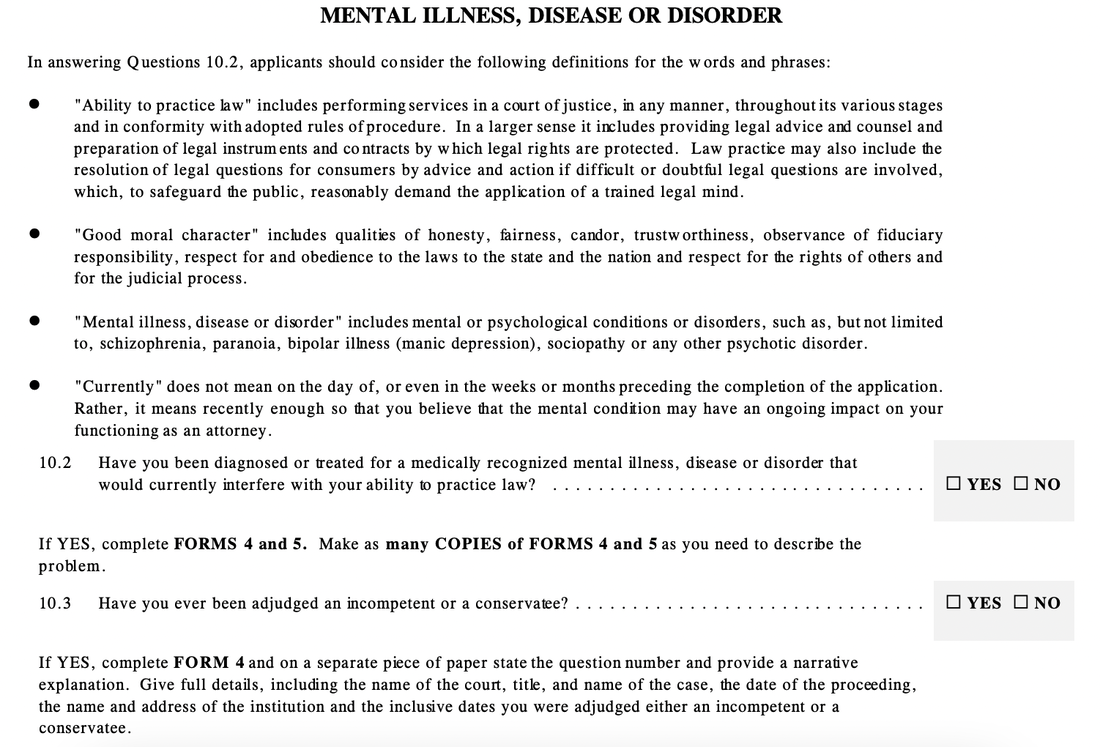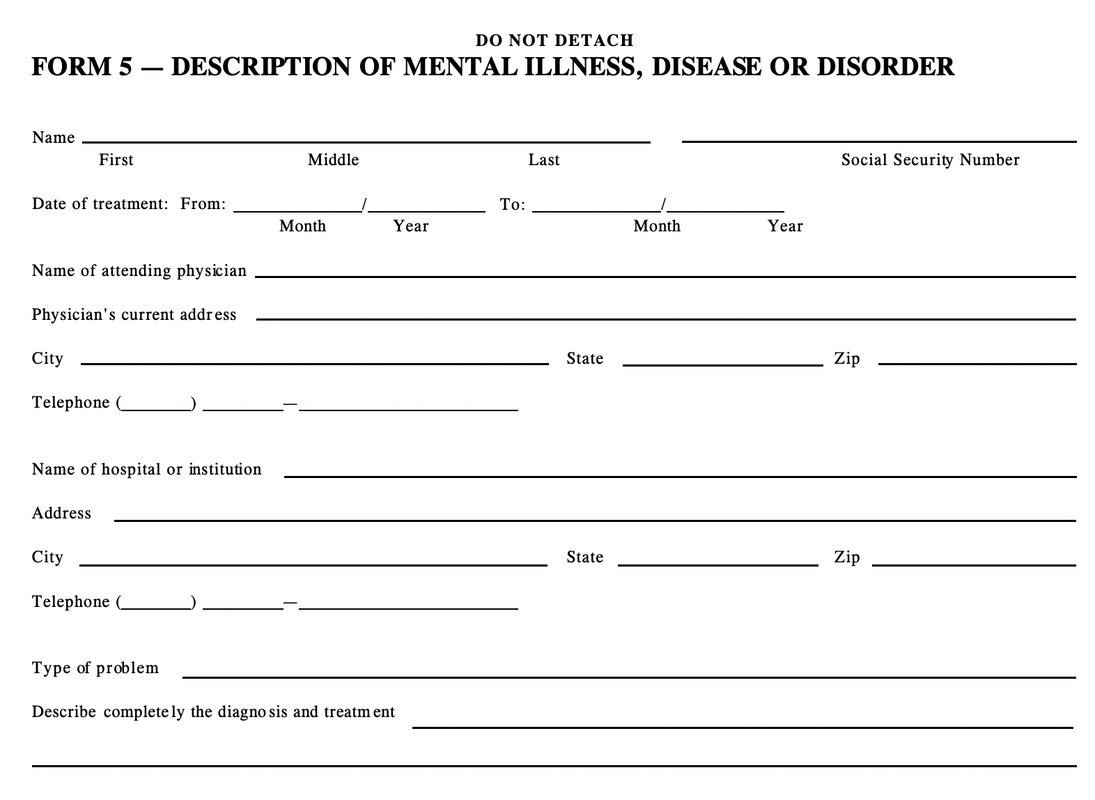|
"I asked a character and fitness staffer in my state what would be an example of someone who would be denied character and fitness based on mental health and she quickly said "unmedicated bipolar." "On July 30, 2019, Governor Gavin Newsom signed Senate Bill 544 into law. This bill amended the California Business and Professions Code Section 6060, and generally prohibits the State Bar of California, or members of its Examining Committee, from reviewing or considering a person’s medical records relating to mental health, except as specified, during the moral character determination process for attorney licensure. The limited exceptions to this prohibition are if the records are being used to show good moral character or to demonstrate a mitigating factor to a specific act of misconduct. This statutory change will go into effect January 1, 202" Many will welcome this change as the C&F questions about mental health have concerned new lawyers who just passed the bar worry about mental health questions barring them from getting a license or having to practice with a restricted license. (In some cases a restricted license means they have to practice with oversight by another lawyer). This can feel very demeaning and like that lawyer is a child who needs to be watched by a parent. Although some persons (Dr. RedfieldJamison) may opine that the practice of law or medicine is a privilege, which it is.... that rarely translates correctly when it comes to the bureaucratic tendencies of the state bar. Although counsel should be mentally stable when practicing the law for the sake of their firm and their clients' cases, looking at mental health history from the past and using any indication of mental illness as reason to delay licensure would be an abuse of discretion on the state bar's part. Dependency court provides a good view into what happens when mental illness bars persons from progressing. When determining jurisdiction, the bench officer and the department will opine that a mental health history, even if from years ago, is dispositive and should be the basis for jurisdiction and or removal. Even if a parent has not had a relapse or having mental health issues interfere with their parenting, the department will mandate that mental health be basis for removal and order that the parent engage in lengthy assessments and treatment before offering unsupervised visitation. The juvenile court will concur with the department and order lengthly time in treatment, total compliance with medication, and several opinions from professionals before determining that the parent has significantly complied with the mental health requirements of their case plan and that unmonitored visits be offered. If dependency practice is any indication of the bureaucratic hurdles that the law throws at mentally ill persons, then it would not be a far reach to suggest that the state bar would be the same. Other lawyers have written about how they had to submit to a year or two of testing, proffering documentation, and compliance with an ABA approved treatment program before obtaining their unrestricted bar license. Even "less grave" mental health issues such as OCD and ADHD have brought about intensified scrutiny from the state bar of these new applicants. The old C&F questions are as follows: Within the past five years, have you been diagnosed with or have you been treated for bipolar disorder, schizophrenia, paranoia, or any other psychotic disorder? Do you currently have any condition or impairment (including but not limited to, substance abuse, alcohol abuse, or a mental, emotional, or nervous disorder or condition) which in any way affects, or if left untreated, could affect your ability to practice law in a competent and professional manner?. If your answer is yes, are the limitations caused by your mental health condition...reduced or ameliorated because you receiving ongoing treatment (with or without medication) or because you participate in a mentoring program? Within the past five years have you ever raised the issue of consumption of drugs or alcohol or the issue of a mental, emotional, nervous, or behavioral disorder or condition as a defense, mitigation, or explanation for your actions in the course of any administrative or judicial proceeding or investigation, any inquiry or other proceeding; or any proposed termination by an educational institution, employer, government agency, professional organization, or licensing authority? As readers can surmise, affirmative answers can bring about many months of scrutiny delaying the time in which a new lawyer can obtain a position at a firm. Some have chosen not to answer truthfully which could have led to severe consequences if the truth were to be discovered at a later date. However, now that the C&F questions do not ask about specific mental illnesses, many applicants have one less issue to worry over.
0 Comments
Leave a Reply. |
Details
Juvenile Dependency and
|

